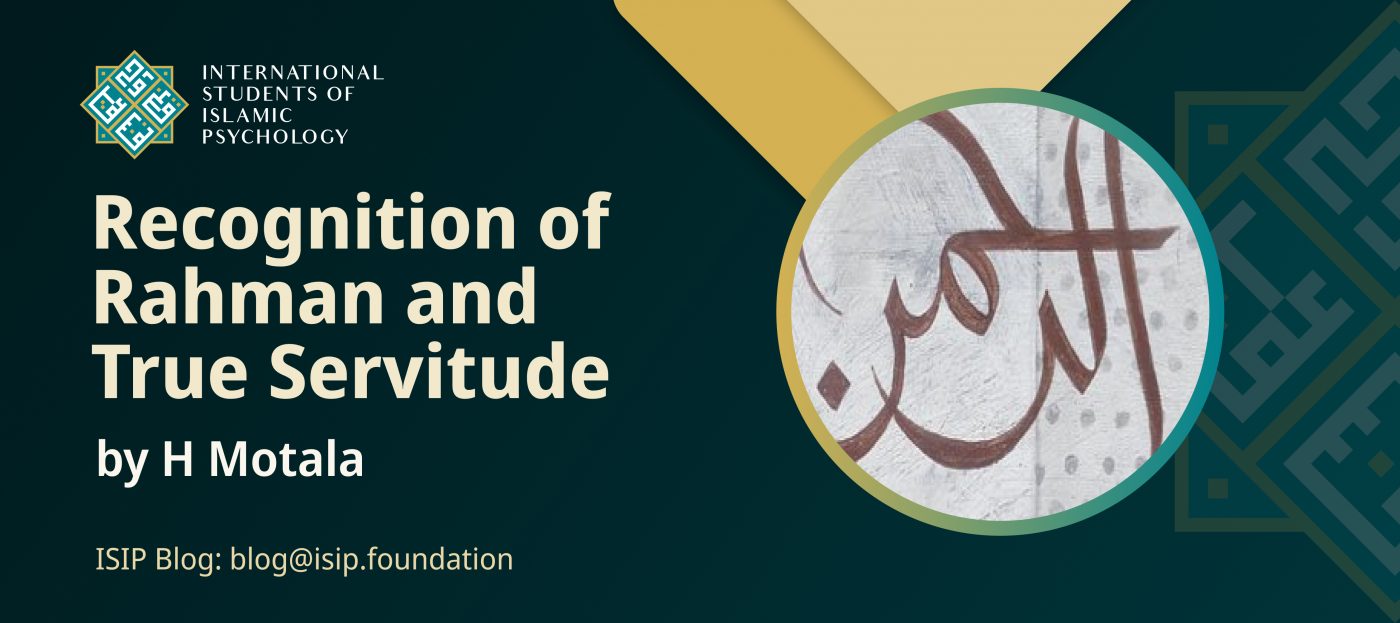
In the hustle and bustle of our daily lives, where financial markets, commodity prices, and exchange rates often dominate our thoughts, it is crucial to pause and reflect on the deeper purpose of our existence. Indeed, the human has not been created, except to know and worship Allah ﷻ.
Certainly, knowledge of Allah is the foundation of all things. In His wisdom, Allah created beings to know Him and worship Him. They know Him through His names and attributes and worship Him through Tawheed (monotheism). This is their ultimate purpose and neglecting it means neglecting the purpose of His creation.
As belief in Allah is the fundamental principle and the first pillar of Imaan (faith), and true Imaan involves knowing the Deity one believes in, to a level of certainty and reaching the rank of Ihsaan, the connection is deep between faith and recognising the Rahman (Merciful).
The more a servant knows Allah, the stronger their faith becomes, along with increased love, reverence, and fear. As our Prophet (peace be upon him) said: “The more a servant knows Allah, the stronger their faith becomes, along with increased love, reverence, and fear”. He (SAW) is also reported to have said: “By Allah, I know Allah better than they do and I fear Him more than they do!” [Al-Bukhari]
The essence of Imaan in Allah includes love, reverence, and glorification. These aspects are branches of knowledge. Without a true understanding of one’s Lord, genuine love and proper reverence are unattainable. The fruits of this knowledge manifest in tranquillity, contentment, and the taste of Imaan, rooted in understanding Allah’s justice, wisdom, knowledge, mercy, and decisions.
Furthermore, continuous mindfulness and knowledge of Allah are what will aid us in reaching the level of Ihsan. Reflecting on His signs, both in the creations around us and in the Quran leads to a profound recognition of Allah ﷻ and what He expects from us.
Ibn Al-Qayyim (RA) states that one door to earning the recognition of Allah is meditation and reflection on all the verses of the Quran, understanding the specific teachings about Allah and His Messenger (SAW).
Allah, in the Qur’an, encourages His servants to attain a deeper understanding of Him in two ways:
- The first way is by observing His numerous creations as these are clear and evident signs.
“Indeed, in the creation of the heavens and the earth and the alternation of the day and night, there are signs for people of reason.” [Aal-Imran:190]
- The second way is by contemplating the verses of the Qur’an and reflecting upon them as these are the revealed signs.
“This is a blessed Book which We have revealed to you, O Prophet, so that they may contemplate its verses, and people of reason may be mindful.” [Al-Mu’minoon:29]
The first is being visible evidence to – the truth of the second.
Allah commands and forbids, orchestrates affairs, sends messengers, reveals books, gives life and causes death, rewards and punishes, is pleased and angered, grants and withholds, honors and humiliates, lowers and raises, hears and sees, knows the hidden and the unseen, He is described with absolute perfection, free from any flaw. There is no deity but Him, and no Lord besides Him. No movement or stillness, no benefit or harm, no giving or withholding, no seizing or expanding occurs except by His power, planning, and command.
Our Allah, Glorified and Exalted, possesses beautiful names and lofty attributes. Each of His sublime names indicates a quality of immense perfection. Every name among His names signifies all the attributes derived from it, encompassing all their meanings. He is the Compassionate, with a vast mercy that encompasses everything. He is the All-Knowing, with extensive knowledge that surrounds everything, nothing escapes His knowledge, be it as small as an atom on Earth or in the heavens. He is the All-Powerful, with absolute capability, nothing is ever beyond His ability. The dominion is in His hand, and He is capable of all things. The names and attributes of Allah are numerous, known and counted only by Allah alone, with no partner.
All His names are beautiful, exceeding in beauty to the utmost degree. Among their beauty is that they are not mere labels but names and attributes indicative of perfection, beauty, and majesty.
Moreover, it is part of their beauty that Allah has commanded His servants to invoke Him by these names, as mentioned in the verse: “And to Allah belong the best names, so invoke Him by them.” (Al-A’raf: 180).
The servant cannot achieve complete servitude to Allah, the Most High, except by realizing His status. In fact, the monotheism of the servant is, by the degree of love for the One and Only. When the heart is filled with veneration for Allah alone, the servant’s Tawheed is perfected. Conversely, if the love and awe for Allah diminishes in the heart, the servant’s Tawheed diminishes. Without awe, there is no true Tawheed, and consequently, there is no genuine servitude.
In a world where financial matters often take center stage, the wisdom from the Qur’an offers a profound reminder of the importance of recognizing Allah in every aspect of our lives. The journey toward spiritual awareness involves seeking knowledge, surrounding oneself with the righteous, finding solace in the remembrance of Allah, and actively resisting sinful desires. This not only enriches our understanding of the divine but also transforms our relationship with the material world. By recognizing Allah, we find a source of strength, tranquillity, and guidance amid life’s complexities.
